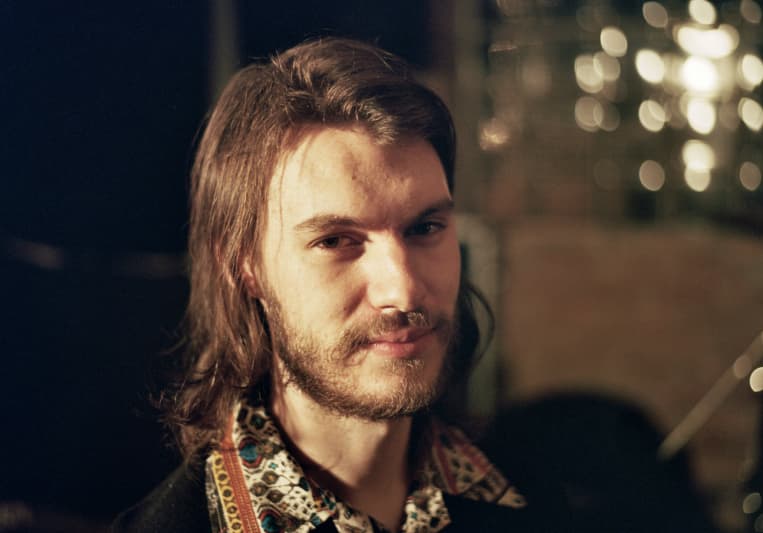
Professional multi-instrumentalist, producer, and arranger. I love making songs sound like they come from fully-formed worlds of their own, like they couldn't be any other way. I've played guitar and bass for groups in a variety of styles. I write and perform string arrangements on double bass. I also program digital and analog synth tracks.
I perform and record electric and acoustic guitar, electric bass, double bass, keys, and drums with artists in a variety of genres in and around Chicago. Most of my experience has been in singer-songwriter rock, but I also have played in punk, metal, folk, hip hop, jazz, and classical groups.
I will deliver polished additions to a pre-existing recording, or start one from the ground up with you. I study songs inside and out before adding to them, making sure I know exactly how to add something that supports and enriches rather than overpowers or distracts.
I record at home. For examples of the quality of my recordings, listen to my audio samples. Every sample was recorded using an SM7B or SM57 into my Propellerhead Balance interface. I edit and process audio in Reason.
Reach out, I'd love to work with you!
Contact me through the green button above and let's get to work.
Interview with Ryan Donlin
Q: Analog or digital and why?
A: A combination of the two is nice. I've got a lot more experience recording digitally, but the few times I've been able to record with tape as an intermediary going into a DAW, I've been impressed by the way it gels everything together.
Q: Tell us about a project you worked on you are especially proud of and why. What was your role?
A: I'm proud of the most recent release from my band, Red Scarves, called Annuals. I'm proud of it because I think the songs sound great. I played mostly guitar and bass on the album and sang a bit.
Q: What are you working on at the moment?
A: Right now I'm working on recording the 3rd album for the band I formed in college, Red Scarves, along with recording as a bassist and guitarist as a sideman for a new project, Olive Avenue, and figuring out guitar parts for live shows with another group called Sick Day.
Q: What advice do you have for a customer looking to hire a provider like you?
A: Always communicate in detail about your vision and what you want, so that you come out of it with what you wanted going into it.
Q: If you were on a desert island and could take just 5 pieces of gear, what would they be?
A: Do XLR cables count as gear? For this question, I'll just include them in "interface." I'd take my laptop, my interface, my acoustic guitar, my electric bass, and my upright bass.
Q: What was your career path? How long have you been doing this?
A: I went to college for music composition. While I was there, I formed a band and produced songs and albums for both that band and other musicians at the school. After I graduated in 2017, I moved to Chicago in order to take advantage of the big city music scene. I've been recording and playing shows ever since.
Q: Can you share one music production tip?
A: A misconception I had a while ago is that musical intensity is generated by increasing activity in the arrangement. While this is sometimes true, often intensity can be ratcheted up by paring back activity. Things can sound "bigger" when there's less motion, which is often the point of half-time sections in songs.
Q: What type of music do you usually work on?
A: I usually work on singer-songwriter rock.
Q: What's your strongest skill?
A: I think my strongest skill is coming up with parts and melodies that outline chord changes in ways that add color and support wherever each is necessary.
Q: What do you bring to a song?
A: I'm very detail-oriented, and a big music theory nerd. I bring clarity, organization, and subtlety to a song.
Q: What's your typical work process?
A: I usually start by figuring out everything that's going on in a recording, including specific details like chord voicings and rhythmic syncopations, and then I try to come up with something that slots seamlessly into that. If there's a vocal or another part that's the main focus, I make sure never to draw too much attention away from that. After I've solidified a part, I record it. Then, I might add some compression, reverb, delay, or distortion, to get it to blend better with the rest of the track.
Q: Tell us about your studio setup.
A: I have a home studio in my apartment. I record into Propellerhead's Balance interface with my SM7B or SM57, or sometimes direct in for electric bass, and process the audio in Reason.
Q: What other musicians or music production professionals inspire you?
A: I'm often inspired by musicians whose arrangements are subtle and detailed, with each part clearly corresponding to and supporting every other part.
Q: Describe the most common type of work you do for your clients.
A: Usually I add electric bass and/or guitar, along with some texture from double bass or synths. I also edit tracks and add effects, and sometimes mix.

I was the guitarist and bassist in this production
- Electric GuitarAverage price - $70 per song
- Bass ElectricAverage price - $70 per song
- Bass UprightAverage price - $70 per song
- String SectionAverage price - $150 per song
- Keyboards - SynthAverage price - $70 per song
- Pop-Rock ArrangerAverage price - $200 per song
- Elliott Smith
- Radiohead
- Sufjan Stevens



